After winning Song of The Year at the 66th Grammys for Barbie’s “What Was I Made For?”, there was one person Billie Eilish wanted to thank: her brother and co-writer, Finneas.
Taking to her Instagram account, the 22-year-old singer wrote, “Can’t even believe this jesuuuuuuus. Thank you to the @recordingacademy and to @finneas for being the best brother and musical partner in the entire world. This is crazy. Thank you thank you,” alongside a photo of the two smiling siblings holding their gilded gramophones.
The song also won the Grammy for Best Song Written for Visual Media earlier in the day, while Barbie The Album, produced by Mark Ronson, Brandon David, and Kevin Weaver, won the award for Best Compilation Soundtrack for Media.
After winning Song of the Year at the Grammy’s for Barbie’s “What Was I Made For?” Billie Eilish dedicated a heartfelt message to her brother and collaborator, Finneas
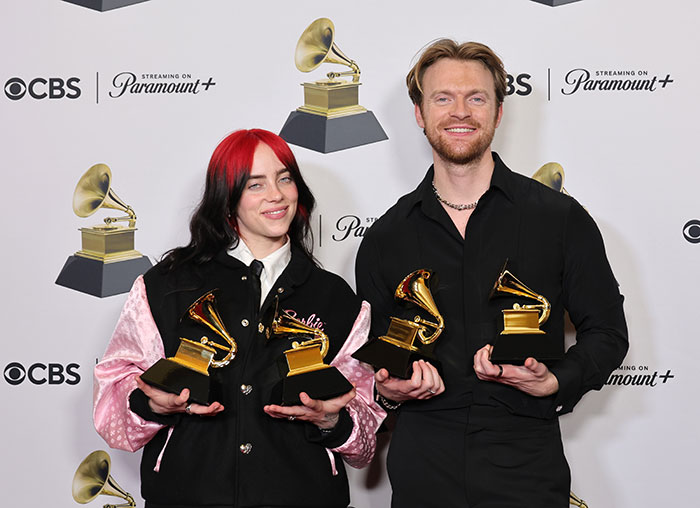
Image credits: Kayla Oaddams/Getty Images
“Damn, dude! I’m shocked out of my balls!” the nine-time Grammy winner said while accepting the award with Finneas. “Everybody in this category; that was a crazy list of incredible people.”
The song beat Lana Del Rey, Taylor Swift, Jon Batiste, Dua Lipa, Miley Cyrus, SZA, and Olivia Rodrigo.
The young star also thanked Barbie’s director, Greta Gerwig, “for making the best movie of the year” and referred to Finneas as her “best friend in the world.”
“Thank you for being the best brother and musical partner in the entire world,” the California singer wrote on social media
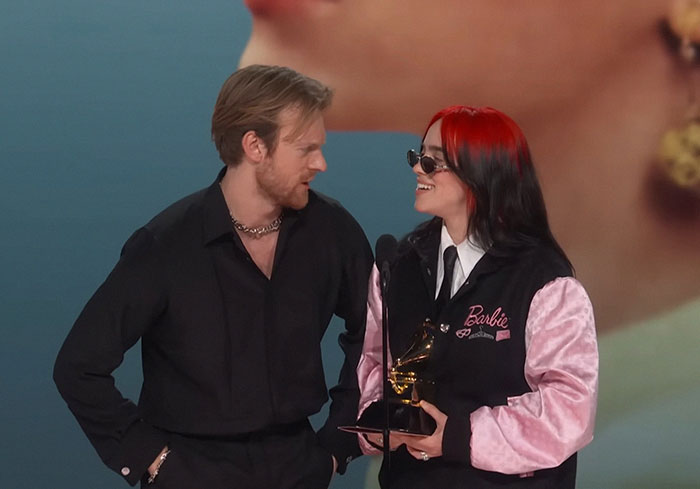
Image credits: Recording Academy / GRAMMYs
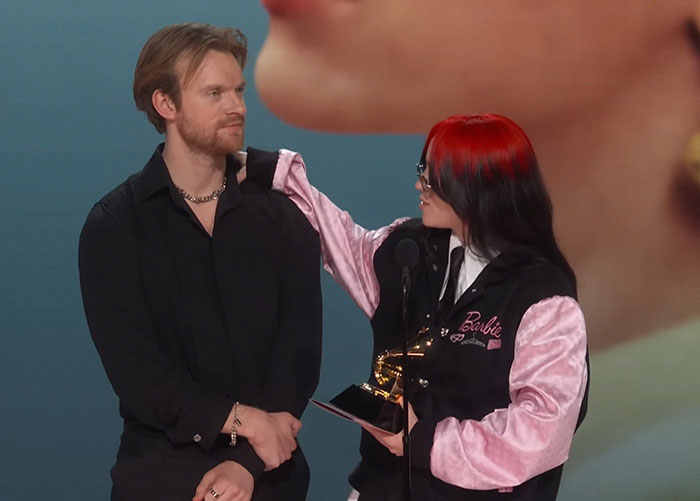
Image credits: Recording Academy / GRAMMYs
Eilish gave an emotional performance of the Barbie ballad during the ceremony while her brother and longtime collaborator accompanied her on the piano.
The duo have been working together since 2015, when a then-14-year-old Eilish recorded a song, “Ocean Eyes,” that her brother had written. Ever since then, the two have been working side-by-side, including on the “Happier Than Ever” album, one of the most successful albums in Billie’s career.
Barbie’s end-credits track had previously earned the pair a Golden Globe for Best Original Song, which marked the second Golden Globe for the talented sibling duo after winning in 2022 in the same category for “No Time to Die,” which was written for the James Bond movie of the same name.
Eilish gave an emotional performance of the Barbie ballad during the ceremony while Finneas accompanied her on the piano
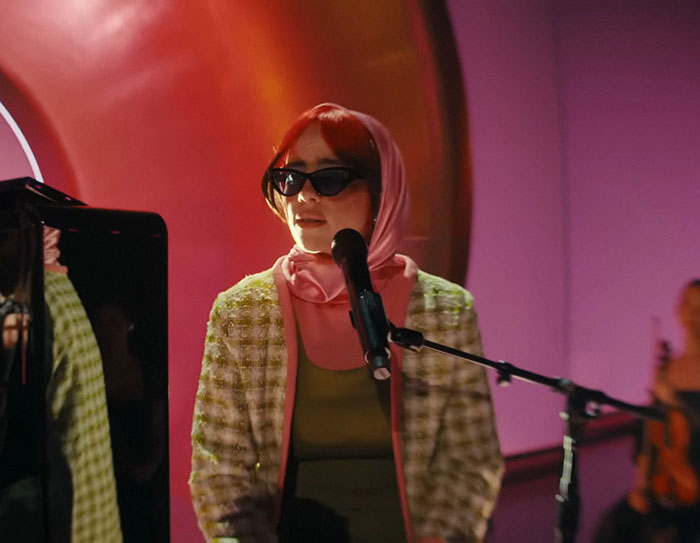
Image credits: Entertainment Tonight
When receiving the golden statuette in January, the California singer opened up about how she felt writing the sentimental song, which came at a time in her life when she was dealing with depression.
“It was exactly a year ago, almost, that we were shown the movie, and I was very, very miserable and depressed at the time,” she said while accepting the award on stage.
“Writing that song kind of saved me a little bit,” she revealed, and added, “a year later, and here we are, and it’s really surreal. I feel incredibly, incredibly lucky and grateful.”
But the songwriting pairing could get even luckier if they accomplish a feat on award shows that was last achieved by the legendary Céline Dion.
The sibling duo have been working together since 2015, when a then-14-year-old Eilish recorded “Ocean Eyes”
Eilish’s and Finneas’ “What Was I Made For?” stands a shot at being the first number since “My Heart Will Go On,” from 1997’s “Titanic,” to win both the best song Oscar and the song of the year Grammy. The important Grammy/Oscar dual victory wasn’t even awarded to globally successful tracks such as Frozen’s “Let It Go” or A Star Is Born’s “Shallow.”
To mirror Céline Dion’s impressive achievement, “What Was I Made For?” will have to beat another song from Barbie, “I’m Just Ken,” as well as “It Never Went Away” (American Symphony), “Wahzhazhe (A Song for My People) (Killers of the Flower Moon), and “The Fire Inside” (Flamin’ Hot).
If the powerful song wins at this year’s Academy Awards, set to take place on March 10, it will confirm the idea that numbers made specifically for films also hold significance in broader cultural contexts.
People celebrated the talented brother-sister duo for their achievement





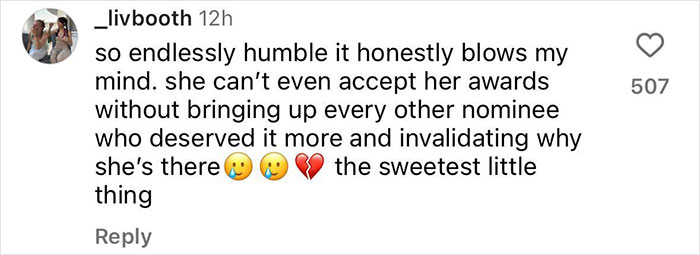






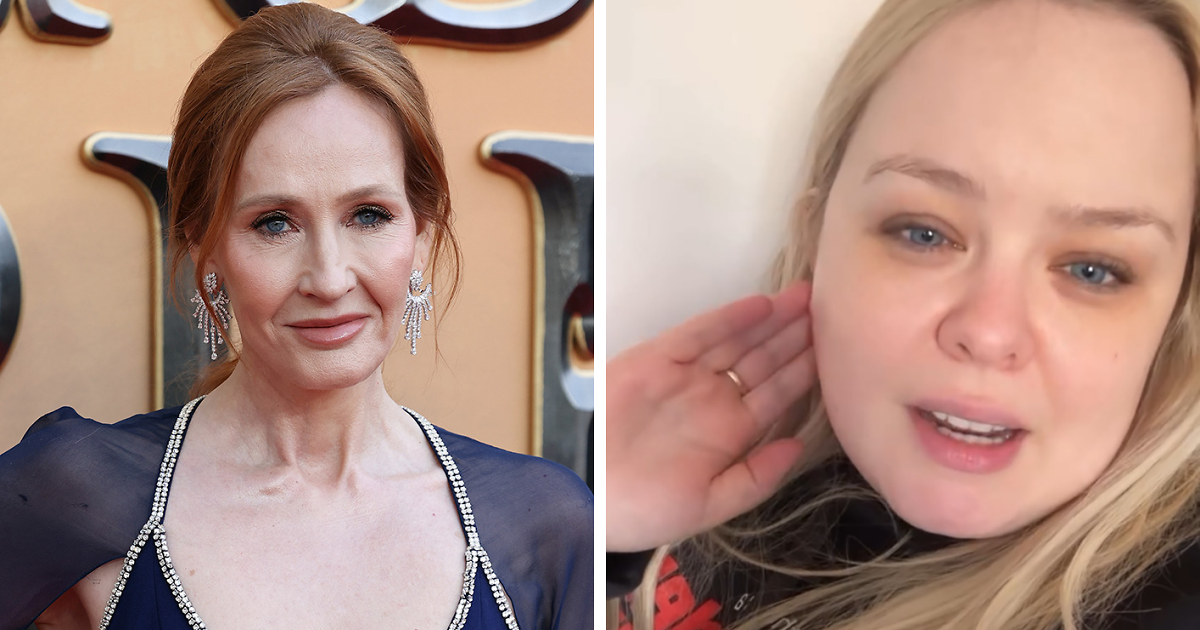

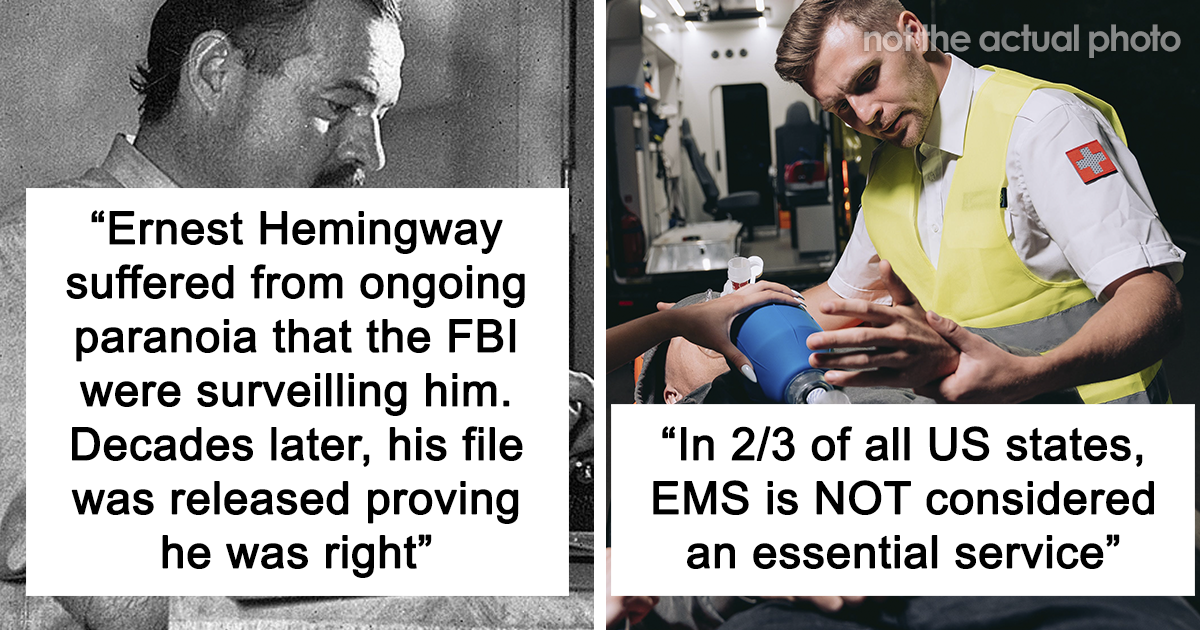

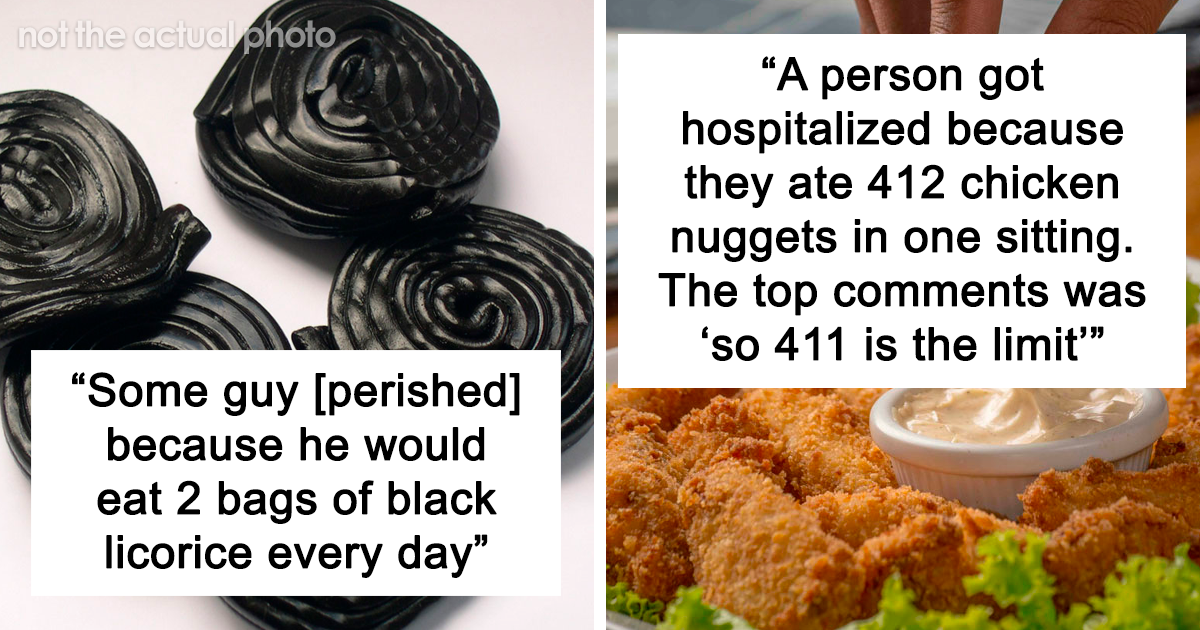





 English (US) ·
English (US) ·